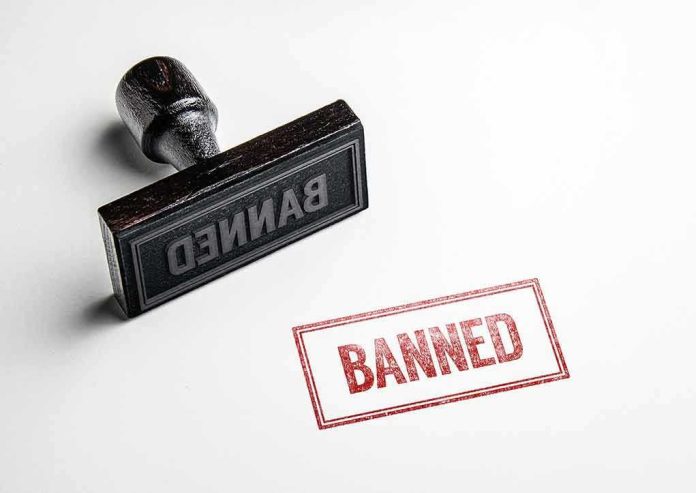
New global tobacco bans show how quickly unelected bureaucrats can strip away personal freedoms, reminding Americans why vigilance against government overreach must remain our top priority.
Story Snapshot
- The Maldives enacted the world’s first generational smoking ban, barring anyone born after 2007 from ever legally using, buying, or possessing tobacco products.
- This sweeping law, applying to citizens and tourists, includes all tobacco forms and fully bans vaping and e-cigarettes for all ages.
- Retailers face harsh fines and strict age verification mandates, signaling an unprecedented level of state enforcement over private conduct.
- The law’s global praise from left-leaning health authorities raises concerns about similar overreach spreading to Western democracies if not checked.
Maldives’ Generational Ban: A Warning on Erosion of Personal Liberty
The Maldives, a small island nation in the Indian Ocean, has become the first country to implement a lifetime tobacco ban for anyone born after January 1, 2007. The law, which took effect November 1, 2025, prohibits this entire generation from ever purchasing, possessing, or using any form of tobacco, including cigarettes and smokeless products. The ban also applies to tourists and is enforced with strict penalties, representing a dramatic shift in government authority over individual lifestyle choices.
The legislation, ratified by President Mohamed Muizzu in May and now in full force, mandates age verification for every tobacco sale. Retailers caught selling to prohibited individuals face fines up to 50,000 rufiyaa (about $3,200), while violations involving vaping products incur penalties of 5,000 rufiyaa. Notably, the ban on vaping and e-cigarettes applies to all ages, erasing any legal alternative to traditional smoking. These sweeping controls extend beyond Maldivian citizens, impacting any visitor to the country, and position the government as the ultimate arbiter of personal health decisions.
Global Health Agendas and the Risk of Policy Export
Public health organizations, including the World Health Organization, have celebrated the Maldives’ ban as a “historic milestone,” with experts calling for other nations to adopt similar measures. The law aims to create a tobacco-free generation, following in the footsteps of New Zealand’s now-repealed proposal and ahead of pending UK legislation. While advocates tout potential reductions in youth addiction and long-term health costs, the precedent raises red flags for Americans concerned about the slippery slope of government paternalism—especially as these models are openly discussed for global export.
Underlying the celebration is a troubling willingness among international authorities to sacrifice individual liberty for so-called public health. The Maldivian law’s reach—criminalizing personal choice, embedding state surveillance in every tobacco transaction, and compelling retailers to serve as enforcers—should alarm anyone who values constitutional freedoms. As global institutions increasingly influence national policy, Americans must watch for similar efforts to erode rights under the guise of safety or well-being.
Constitutional Values and the Role of Government
The Maldives’ smoking ban highlights a growing trend of using government power to dictate private behavior, a dynamic fundamentally at odds with American traditions of limited government and personal responsibility. While supporters argue the law protects youth and saves lives, critics warn it sets a dangerous precedent for further state intervention—potentially against gun ownership, dietary choices, or other constitutionally protected liberties. The ban’s inclusion of tourists demonstrates how quickly such mandates can extend beyond borders, affecting anyone subject to a nation’s jurisdiction.
This is horrific. Not a smoker, never have been but this is just totalitarian at its worst.
Smoking banned for entire generation under sweeping new national law https://t.co/I4kNC5435p #FoxNews
— John Paul Jones (@rockjunk6) November 5, 2025
Conservative Americans understand that safeguarding liberty requires constant vigilance. Policies that criminalize ordinary conduct and empower bureaucrats to monitor, fine, and control citizens—often with support from unaccountable international groups—undermine the very freedoms that define our nation. The Maldives’ generational ban serves as a stark reminder: without active defense of our constitutional rights, top-down control can sweep in under the banner of health, safety, or progress, leaving lasting damage to individual autonomy and national character.
Sources:
Generational Tobacco Ban – Tobacco Insider
Maldives becomes first country to impose generational ban on tobacco
Smoking banned for entire generation under sweeping new national law
Maldives makes history with lifetime smoking ban for new generation
Health leaders demand action on generational smoking ban
List of smoking bans – Wikipedia
Tobacco industry interference with endgame policies
Generational tobacco bans: Policy analysis and commentary







